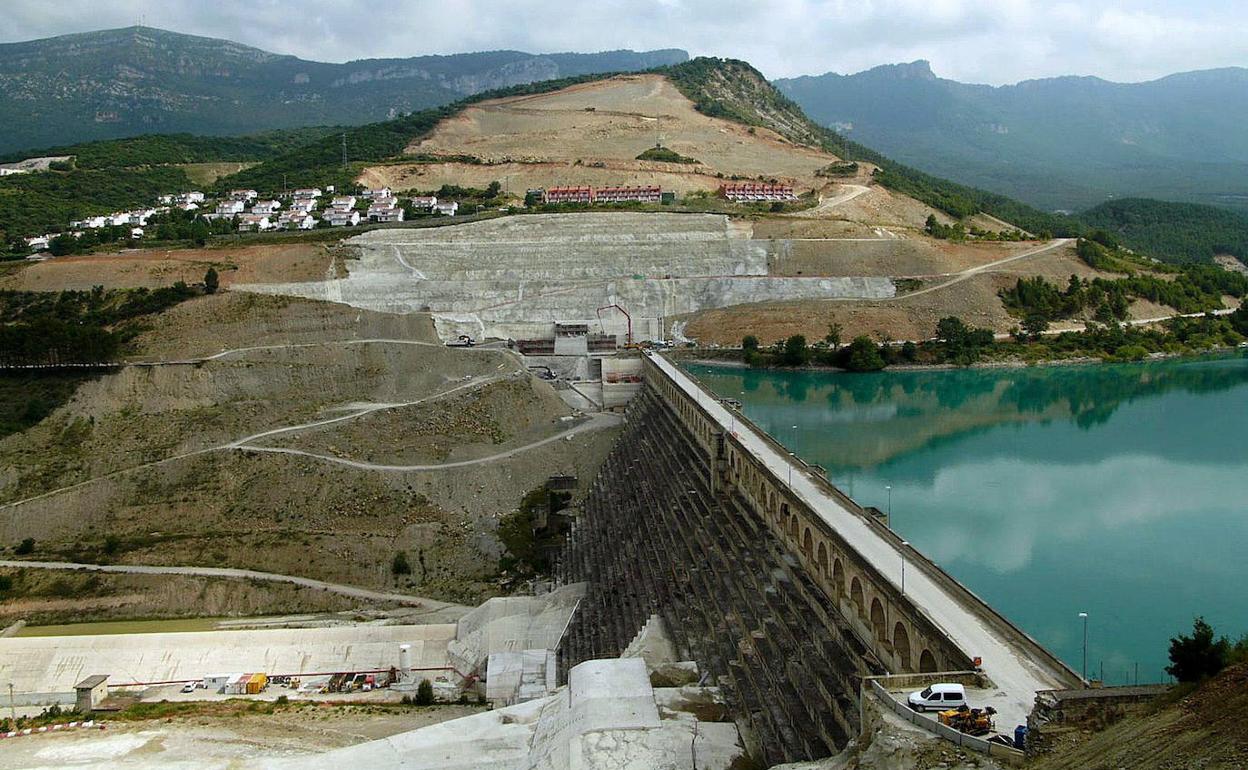Society
Environment
Politics
Economy
Culture
Basque language
Feminism
Education
International
Opinion
saturday 10 may 2025
Automatically translated from Basque, translation may contain errors. More information here. 
Finally, the triumph of love
- Nothing to apologize:: Alberto Ladrón Arana.One to another.316 pages. 21 €

The novel Zer barkatuta ez starts from a moment of crisis in which the protagonist is immersed. Mikel Izu leaves her wife and, after a supposed depression, moves away from her work. Meanwhile, a brother who did not see him a long time ago has made his own; a human finger found in his house and an aerial document with a German name start a story with an unrealistic tone that Mikel did not expect. Characters of all kinds start to cross in the life of the protagonist: An Andalusian girl looking for Mikel's brother, an enigmatic old man with one ear, Ukrainian drug traffickers, a jealous Ludophian husband, among others, Jews and Nazis who survived a bloody event that occurred in 1941.
In a confusing panorama and without apparent connection, the chain of relations between the characters will be built through continuous unexpected events. The crosses of the different stories will build a single wall and, in parallel, we will see the hidden past of each character drawn. Burglar Arana has demonstrated an almost inexhaustible capacity for his imagination, through 316 pages full of mysteries that manage to attract the reader’s attention. There is no time to think, the unrelenting action takes the reader hand in hand. It has used a light writing that fits perfectly into a mystery novel and in which it helps the tendency to humor and irony involved in the words of the protagonist. Many times when we move in the depths of that fictional level, the gestures that make us laugh are thankful, because they remind us that we are in reality.
Ladrón Arana has made Pamplona the central stage, a space that may be “too close” to us. However, the lack of concreteness of its streets and places, as well as the fact that the intrigue has spread to other spaces, increases the chances that the reader will immerse himself in fiction on his own, as occurred in the novel Ahaztuak pentua (2009). In that novel that had as stage Pamplona, pretending to be too realistic, the force of the mystery of crimes was quite weak, at least for the taste of the final pamploneses.Al, as in the revenge of the
Forgotten, the things of love become important. In this case we did not find a love triangle, but we heard the title of the novel in the protagonist’s mouth, saying that “there is nothing to forgive.” In addition to being an interim indication of chained crimes and mysterious events, he conveys the feeling that he wanted to highlight the triumph of the love relationship that has been made throughout the narrative, as if he wanted to confirm that the love crisis of the protagonist that gave rise to the novel has been overcome. It's just one of the sensations that can be triggered by the end of the novel, one that prefers the laughter of the madmen it causes.
In a confusing panorama and without apparent connection, the chain of relations between the characters will be built through continuous unexpected events. The crosses of the different stories will build a single wall and, in parallel, we will see the hidden past of each character drawn. Burglar Arana has demonstrated an almost inexhaustible capacity for his imagination, through 316 pages full of mysteries that manage to attract the reader’s attention. There is no time to think, the unrelenting action takes the reader hand in hand. It has used a light writing that fits perfectly into a mystery novel and in which it helps the tendency to humor and irony involved in the words of the protagonist. Many times when we move in the depths of that fictional level, the gestures that make us laugh are thankful, because they remind us that we are in reality.
Ladrón Arana has made Pamplona the central stage, a space that may be “too close” to us. However, the lack of concreteness of its streets and places, as well as the fact that the intrigue has spread to other spaces, increases the chances that the reader will immerse himself in fiction on his own, as occurred in the novel Ahaztuak pentua (2009). In that novel that had as stage Pamplona, pretending to be too realistic, the force of the mystery of crimes was quite weak, at least for the taste of the final pamploneses.Al, as in the revenge of the
Forgotten, the things of love become important. In this case we did not find a love triangle, but we heard the title of the novel in the protagonist’s mouth, saying that “there is nothing to forgive.” In addition to being an interim indication of chained crimes and mysterious events, he conveys the feeling that he wanted to highlight the triumph of the love relationship that has been made throughout the narrative, as if he wanted to confirm that the love crisis of the protagonist that gave rise to the novel has been overcome. It's just one of the sensations that can be triggered by the end of the novel, one that prefers the laughter of the madmen it causes.
Most read
Using Matomo
#1
Uxue Gutierrez Lorenzo
#2
Lurraren Defentsan Euskal Herria Bizirik
#3
#4
#5
Mikel Garcia Idiakez
Newest
2025-05-09
Olaia L. Garaialde
Tools to accompany nutrition during menopause
Andrea Velasko, a dietitian and nutritionist, has provided some keys to managing the changes caused by menopause through nutrition.
2025-05-09
Uxue Gutierrez Lorenzo
A well-sown harvest
BRN + Neighborhood and Sain Mountain + Odei + Monsieur le crepe and Muxker
What: The harvest party.
When: May 2nd.
In which: In the Bilborock Room.
---------------------------------------------------------
The seeds sown need water, light and time to germinate. Nature has... [+]
2025-05-09
Euskalerria irratia
On May 18th they will celebrate the Feast of Creation in Takonera
After a six-year hiatus, on May 18, the Surge party will be held in Takonera to support Model D public schools. There will be shows, games for children and concerts by Gorka Urbizu and/or Borla.
2025-05-09
Idoia Rodriguez Mondragon
It's for your benefit.
Seeing how many psychologists, doctors, therapists... share miraculous methods, one can think that the education of children is an international concern and that we have all become experts.
2025-05-09
Xabier Letona Biteri
47 million euros more was "safe" to guarantee the safety of the Esa reservoir
The President of the Ebro Hydrographic Confederation (CHE) made the announcement at the beginning of the week: The fourth adaptation of the works for the expansion of the Esa reservoir will be launched this year and 47 million euros will be spent to stabilize the right side of... [+]
2025-05-09
Arabako Alea
Vitoria-Gasteiz gardeners meet with the city council for the first time
The City Council of Vitoria-Gasteiz said the company is calling for negotiations. The unions have asked him to defend the workers of Vitoria-Gasteiz against the US investment fund that owns Enner.
2025-05-09
Onintza Irureta Azkune
Patxi Saez Beloki Member of ZirHika
“Even doing Hikaz, you learn by doing”
For the first time in the series, there will be a hike. Eighty-three villages have been registered. The initiative is organized by the ZirHika operative group, which was created last year to promote the Hitano, together with Taupa. We interviewed Patxi Saez Beloki, member of... [+]
2025-05-09
Lurraren Defentsan Euskal Herria Bizirik
The solution is not technical, it is social; the answer to Arnaldo Otegi
In recent weeks, the debate on renewable energies has been spreading in the media. In the Basque Country, we first had the media case of the attack suffered by Aritz Ochandiano, whom he attributed to his support for renewable energies; a few days later, the great blackout, and... [+]
2025-05-09
Urko Apaolaza Avila
More places to stay in Turiel: “You can look for technical reasons, but the blackout was caused by the perverse price system”
Antonio Turiel, a physicist and researcher at the CSIC, filled the church of San José el Trabajador in the Florida neighborhood of Hernani on Wednesday in a different way from years ago. Zientoka’s friends came together to listen to his lecture entitled The Limits of the... [+]
2025-05-08
Gorka Peñagarikano Goikoetxea
The American Robert Prevost will be the new pope, Leo XIV
He will be the 267th pope of the Catholic Church. The conclave lasted only one day.
2025-05-08
Mikel Garcia Idiakez
Negotiations between public education teachers and the government continue on Friday
2025-05-08
ARGIA
Iratxe Sorzabal has been acquitted by the National Court because self-incrimination was "the result of ill-treatment"
2025-05-08
Unai Lomana Uribezubia
In the interview conducted by the New Sueskun River:
"We have organized a joyful event to proclaim that Basque belongs to all of us"
The Sorioneku movement has called for a mobilization for Saturday. In the morning they will meet from village to village in the bridges of Navarre and in the afternoon they will start a demonstration in Pamplona. It has been revealed that it will not be a "traditional"... [+]
Eguneraketa berriak daude























